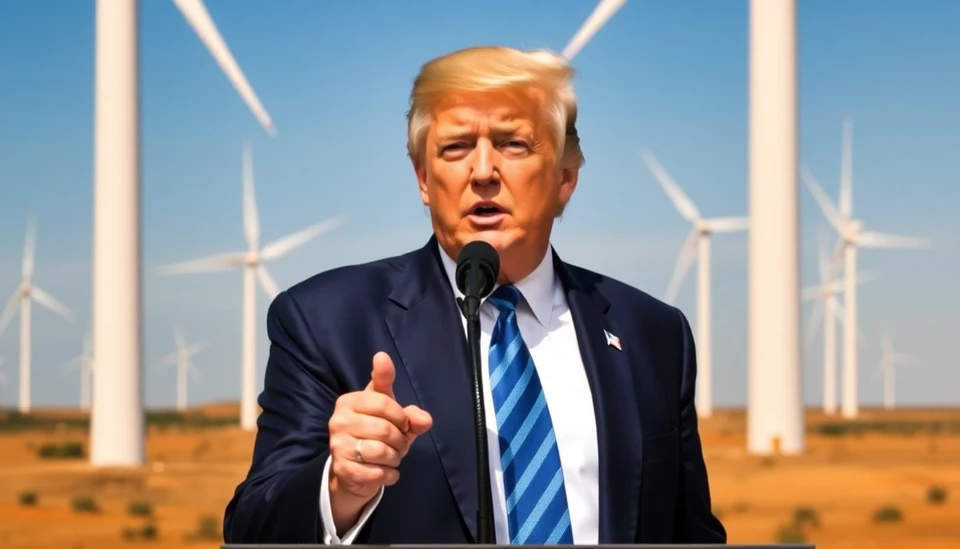
In a bold declaration made during a rally in West Virginia, former President Donald Trump announced his intention to prohibit new leasing for wind power projects. This commitment marks a significant shift in energy policy and reflects Trump's enduring focus on bolstering the fossil fuel industry. His remarks come as energy debates intensify, especially concerning renewable sources versus traditional fossil fuels.
Trump's statement was positioned within a broader context of advocating for the interests of coal miners and oil workers, emphasizing that his administration would strive to dismantle what he perceives as overreaching regulations and policies that favor renewable energy. By promising to end wind power leasing, Trump aims to resonate with his base, particularly in regions heavily reliant on fossil fuels, where concerns about job security and economic stability continue to dominate discussions.
The former president's pledge arrives at a time when the Biden administration has been promoting clean energy initiatives and attempting to transition the United States toward a more sustainable energy future. This stark contrast in energy policy is likely to become a core issue heading into the next presidential election cycle, where energy independence and economic viability will be pivotal topics for debate.
During his address to supporters, Trump highlighted the challenges faced by coal and oil industries, asserting that wind power is an unreliable source of energy that could endanger American jobs. He seized the opportunity to criticize the current administration's energy strategies, labeling them as detrimental to the country's economic interests and workforce.
As part of his energy agenda, Trump has previously voiced support for expanding fossil fuel production, which he insists is necessary to revitalize struggling communities in coal country and beyond. This focus on fossil fuels aligns with Trump's broader political narrative that prioritizes American job creation and energy independence through conventional energy resources, a stance that appeals to voters disillusioned by the rapid changes in the energy market.
Moreover, Trump’s criticism of wind power aligns with ongoing debates regarding the efficiency and environmental impacts of renewable energy sources. Critics of wind energy point to issues such as noise pollution, threats to bird populations, and changes to rural landscapes, arguments that resonate with segments of the population wary of large-scale renewable projects. Trump has pledged to reverse policies that encourage wind development, painting the initiative as a priority if he secures another term in office.
As we move forward, it remains to be seen how Trump's proposed actions will play out against the backdrop of broader climate change initiatives and the global push for alternative energy solutions. The implications of halting wind power leasing could reverberate beyond immediate job impacts, affecting investment in renewable technologies and international commitments to combat climate change.
Overall, Trump’s declaration signals a fierce battle over America’s energy future, pitting traditional energy sources against renewable options as stakeholders prepare for an evolving political landscape leading to the 2024 elections.
As the dialogue continues, voters are urged to engage and critically assess the direction these policies may take and their impact on both local economies and the environment.
#Trump #WindPower #FossilFuels #EnergyPolicy #CoalIndustry #RenewableEnergy #2024Elections #EconomicRevival
Author: Sophie Bennett




